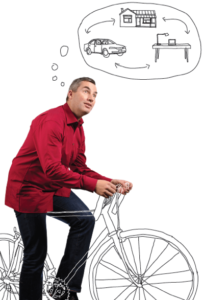What we’re doing
We have conducted a national household survey that is designed to understand how New Zealanders interact with energy and transportation. Surveying a representative sample of New Zealanders gives us insights into how different groups behave when travelling and consuming energy in their homes.
The results will be used by other research streams and will also inform policy about energy and transportation in New Zealand’s future. With more information we can make better choices about our energy and transportation choices as a country and as individuals.
What we’ve found out so far
Click here to read our report:
National Household Survey of Energy and Transportation: Energy Cultures 2,
Key findings:
- A clear picture of the state of the energy efficiency of our housing stock, our household energy behaviours and our driving (and transport) behaviours has been collected.
- Four? clear clusters of energy consumers are identified:
- The Energy Comfortable (23.7%) have less remedial (e.g. dehumidifier) energy use. They live in warm dry houses.
- The Energy Poor (21.1%) not only have the lowest incomes, they also have the lowest number of energy efficiency household modifications and practise the least number of energy saving driving behaviours.
- The Energy Average (24.6%) are exactly that, exceptional in very few attributes. There are significant opportunities for them to save energy.
- The Energy Efficient (24.3%) earn a similar amount to the Energy Average and the Energy Comfortable but have power bills similar to the Energy Poor.
- New Zealand’s housing stock is frequently not adequately insulated or efficiently heated
- Many New Zealanders do not practise energy saving behaviours around the house, including behaviour as simple as turning off lights in un-occupied rooms. This research gives insight into the frequency with which behaviours are practised.
- There is considerable opportunity to save money through efficient driving (most estimates are 15%) however many efficient driving behaviours are not practised by our sample.
- The earthquake in Christchurch is clearly found in the results with regard to heating, transportation and traffic issues.
- Poor energy behaviour in the house is strongly related to poor driving (from an energy point of view) and a low energy efficient house.
- The results would suggest that a systems approach to improving energy consumption will reap the best rewards.

